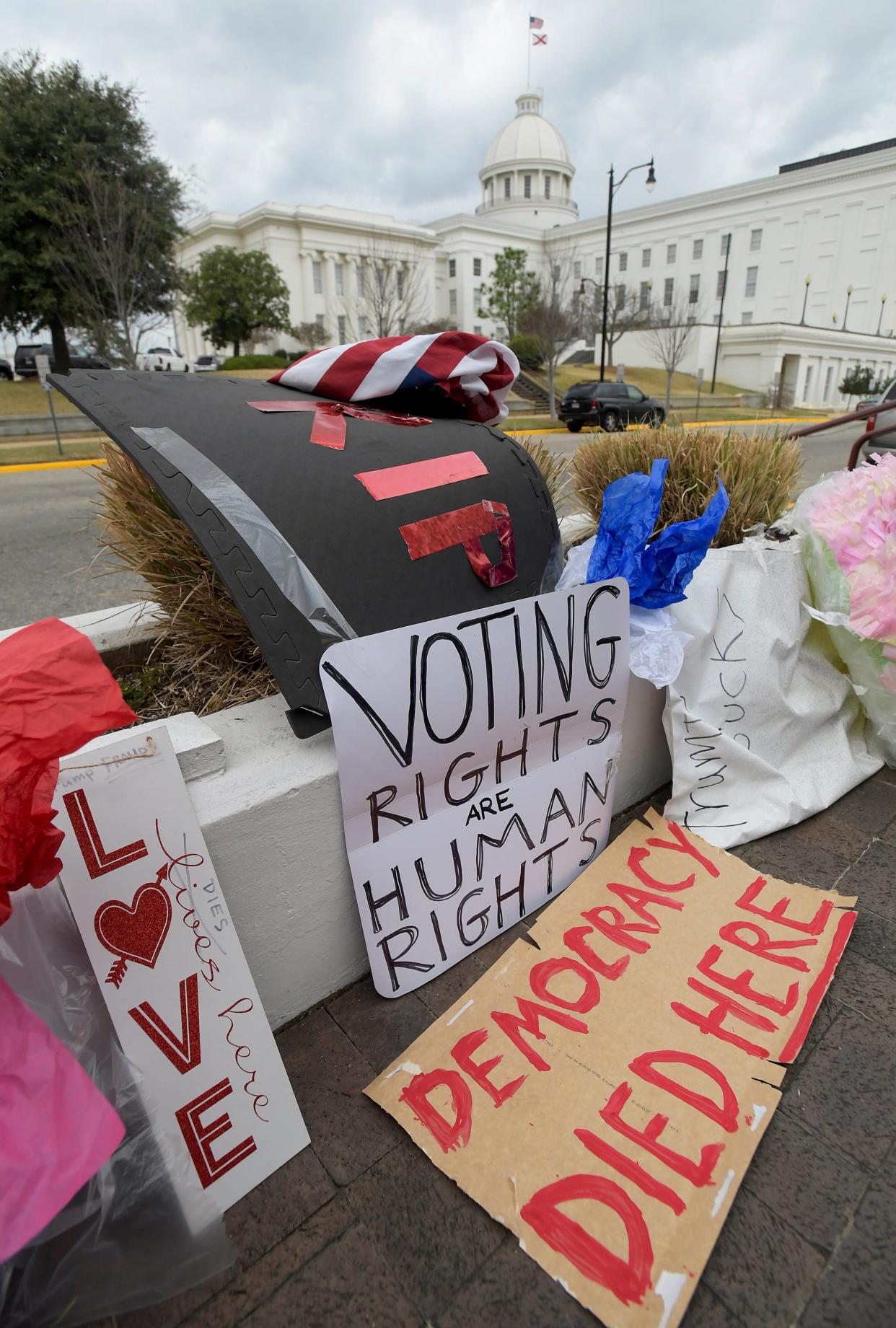'A floor, not a ceiling': Alabama in a post-Roe vs. Wade world

Two years ago, the Supreme Court of the United States overturned Roe v. Wade, the case that set precedent for abortion care in the U.S. Alabama law bans all abortion with the exception of when the pregnant person's life is in danger.
These laws already existed but were able to immediately take effect after Roe's overturning. According to Alabama Public Health report, 8,294 women in the state terminated pregnancies in 2021. Of those women, 214 were under 18 years old.
Stephen Stetson, state director of Planned Parenthood Southeast, said that even while under Roe, Alabama still faced many problems. "Roe was a floor," he said, "not a ceiling."
More: Two years ago, SCOTUS overturned the right to an abortion. Here is how each state changed
The state also faced issues around in-vitro fertilization earlier this year after the state Supreme Court ruled that fertilized embryos had the same rights as a living child. The court's ruling was met with national controversy for using multiple biblical references in its decision. Soon after the decision, U.S. Secretary of Health and Human Sciences Xavier Becerra hosted a forum in Birmingham for IVF patients to share their stories on the treatment.
"Roe would not have permitted this," he said during the forum, saying that the ruling wasn't just about abortion and that he hoped the women would continue to tell their stories.
More: Biden's top health expert travels to Alabama to hear from IVF families upset by court ruling
Multiple healthcare facilities across the state proceeded to halt all IVF procedures out of fear of prosecution. While the state legislature quickly passed legislation to protect facilities from liability, many are still unsettled about the future of IVF.
“These restrictions are politically motivated, strategic and intentional," said Carol McDonald, President and CEO of Planned Parenthood Southeast during a June news conference. "They impact our lives and bodies and have large ripple effects that hit our entire healthcare system.”
The U.S. Senate blocked The Right to IVF Act in June, legislation that would have protected IVF and other forms of reproductive healthcare. The Southern Baptist Convention condemned the practice during its conference in Indianapolis this month. The Catholic Church is also explicitly against IVF, saying it is “'morally unacceptable' because it separates the marriage act from procreation and establishes “the domination of technology” over human life."
“We cannot allow the South to be abandoned at this moment," said Kwajelyn Jackson, executive director of Feminist Women’s Health Center. "We can’t let our states wither on the vine. We need to put the most investment into the places where the work is the rockiest.”
More: Mom delays IVF procedure after 'Band-Aid fix' by Alabama legislature
The state has had an over 20 percent decrease in OB-GYN residencies since the Dobbs v. Jackson ruling in 2022. Roughly one-third of Alabama counties have limited or no OB-GYN services available to patients.
"Even people who are not seeking abortions are facing the effects of this healthcare crisis because of these maternal and infant mortality statistics," said Stetson. "We're talking about millions of people across the state who don't have access to the maternal and natal care that they need."
Healthcare of all kinds has been a major topic of discussion for the upcoming election at all levels of government. Alabama Rep. Marilyn Lands, D-Huntsville, flipped a historically red seat after campaigning under the support of IVF treatment, sharing her own abortion story for a “nonviable” pregnancy.
According to the Center for Disease Control and Prevention, Alabama had an infant mortality rate of 6.69 infant deaths per 1,000 live births in 2022. The life expectancy at birth of Alabamians is 73.2 years old, ranking just above Louisiana, Mississippi and West Virginia, with the leading cause of death being heart disease.
"History shows us that it's overwhelmingly popular to allow people to control their own bodies," Stetson said. He added that even in highly conservative states there's a general believe that healthcare "is about a choice between a patient and a doctor."
Victor Hagan is the Alabama Election Reporting Fellow for the USA TODAY Network. He can be reached at vhagan@gannett.com or on X @TheVictorHagan. To support his work, subscribe to the Advertiser.
This article originally appeared on Montgomery Advertiser: Alabama continues to face healthcare disparities after Roe v. Wade

